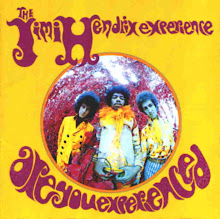 The Stone Roses were four lads from Manchester who believed they could be better than the Beatles. They had influences, sure, but they wanted to be individual. Because only then could they last. Only then would they mean something to future generations. The Stone Roses survives and shines because the band wanted their debut album to be a timeless record. Listening to it may take you back to baggy, to Madchester, to ecstasy and dancing in fields in floppy hats and flares. But it also exists in its very own space.
The Stone Roses were four lads from Manchester who believed they could be better than the Beatles. They had influences, sure, but they wanted to be individual. Because only then could they last. Only then would they mean something to future generations. The Stone Roses survives and shines because the band wanted their debut album to be a timeless record. Listening to it may take you back to baggy, to Madchester, to ecstasy and dancing in fields in floppy hats and flares. But it also exists in its very own space.Sometimes it's cool to be arrogant. Sometimes it's OK to be confident and cocky. The Stone Roses had cheek and ridiculous self-belief. When producer John Leckie finished work on the band's eponymous debut, he told them they were going to do well. They shrugged; they knew. They had that idiosyncratic Manc swagger as epitomised by Happy Mondays before them and Oasis after.
Although singer Ian Brown was beautiful, with his pale northern skin, Jagger lips and hollow cheeks, the Roses were also very much a band. You get the idea that when Brown and Squire went into the studio with bass player Gary 'Mani' Mounfieldand drummer Alan 'Reni' Wren, they trusted and understood one another and were able to do what came naturally to them. They didn't worry about the influences of Jimi Hendrix or Johnny Marr, they just wrote what was in their hearts. You can't create genius; it just is.
 When The Stone Roses was released in May 1989, it almost instantly became a classic. The opening chords of 'I Wanna Be Adored' are a perfect statement of intent, sending shivers down the spine with a rumbling, thumping bassline even before Squire's immense guitar sound sets in. It matters not that the lyrics have barely more than a dozen words; the sentiment is made crystal clear.
When The Stone Roses was released in May 1989, it almost instantly became a classic. The opening chords of 'I Wanna Be Adored' are a perfect statement of intent, sending shivers down the spine with a rumbling, thumping bassline even before Squire's immense guitar sound sets in. It matters not that the lyrics have barely more than a dozen words; the sentiment is made crystal clear. John Leckie's clever production allows the band to explore their ideas, leaving the songs with raw edges and making them feel real rather than synthetic. Brown's vocals are assured yet sometimes a little croaky, silky smooth yet a little cracked. And the folky Simon and Garfunkel feel is not just present on the 59-second 'Elizabeth My Dear' (an attack on the Queen set to the music of 'Scarborough Fair') but throughout the album.
In some ways this is not the sound of Manchester in the ecstasy-fuelled late Eighties, but a universal sound born of the Sixties. Squire may experiment with Hendrix ('Shoot You Down') and Marr ('Bye Bye Badman') but his heart favours trippy, psychedelic guitars. And he certainly knows how to write anthems, from the magnificent melody of 'Waterfall' to the closing track, 'I Am the Resurrection'. Brown later explained that he had to coax the band into letting the latter run to its full eight minutes, 12 seconds; they were worried about being pretentious prog rockers.
While the others were worrying about the effects of freeform jamming, Brown was wondering what might become of them. 'If we do get big ... we're either gonna get fucked up or we're gonna die - that's what happens to everybody.' He wanted to be in the biggest band in the world - he believed he was - but he knew there could be serious consequences too. Yet even Brown could not have anticipated a long, painful fight with their record label and a delay of over five years before a second album appeared.
In the end, the Stone Roses split up very publicly. All the stories seemed so important at the time: Brown and Squire no longer on speaking terms, the paint thrown over the offices of their other record label. Yet none of that really matters now. Fifteen years on, what we are left with is the art, the music.
The Roses had northern cool but they also had northern soul. They believed they should matter and they did.






